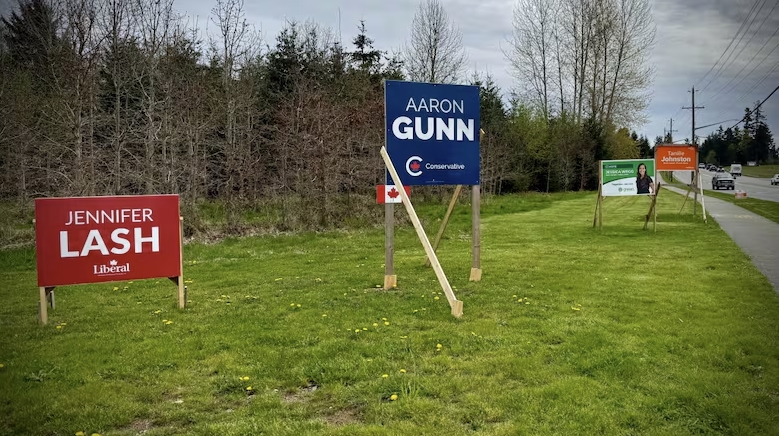Strategic Voting Surge on Vancouver Island as Voters Weigh Trump-Era Stakes
Sarah Desjardins
4/14/20252 min read


Vancouver Island is emerging as one of the most tightly contested battlegrounds in the federal election, with a growing number of voters considering strategic voting to prevent a Conservative win in their ridings.
“There’s no other place in this country where the parties that are not Conservative are so competitive with each other,” said JB Burrows, founder of SmartVoting.ca, a platform that guides progressive voters toward candidates with the strongest chances of winning.
While ridings across the island have historically bounced between the NDP and Conservatives, the Green Party has maintained a strong presence — and this year, polling suggests the Liberal Party may be making a comeback after more than a decade without a Vancouver Island seat.
Split on the Left
That crowded field on the left is creating a dilemma for voters who want to stop Conservative gains but are divided over which progressive candidate to support.
“The island is still incredibly split,” Burrows said, noting that even some traditional NDP strongholds face significant Green and Liberal challenges.
Strategic Voting Arrives Early — and Loudly
Mario Canseco, president of Research Co., says talk of strategic voting isn’t new — but it’s become much more prominent and urgent, far earlier in the campaign than in past elections.
The reason? Donald Trump.
“What is happening is a heightened level of concern about who forms the government,” Canseco said. With Trump pushing new tariffs and reigniting cross-border tensions, nearly a third of Canadians now cite Canada-U.S. relations as their top voting issue — eclipsing even housing and the environment.
Polling Pitfalls
But Canseco urges caution. Many riding-level projections are built on national and provincial trends, not actual local polling or candidate-specific factors.
“It’s a fun exercise. But it’s not a riding-level poll,” he said, warning that strategic voting based on these numbers can be misleading.
Conservatives Gaining Ground
Despite progressive worries, the Conservative Party remains strong in several key ridings.
In North Island–Powell River, Conservative candidate Aaron Gunn has faced public backlash, including calls for his resignation and online petitions. Yet, he also enjoys vocal support from some local officials and community members. Riding-level projections (despite Canseco’s cautions) show Gunn with a substantial lead.
In Courtenay–Alberni, Conservative candidate Kris McNichol also polls ahead, prompting some left-leaning voters to pressure Green candidate Chris Markevic to step aside in favour of NDP incumbent Gord Johns. Markevic, a former NDP member, is resisting that call.
“The NDP are 100 per cent responsible for the mess they have made,” he wrote on social media. “Their party has lost its identity… and that is not the fault of the Greens.”
Freedom vs. Strategy
Some voters and former politicians say the rush toward strategic voting risks eroding a basic democratic principle: voting your conscience.
John Wilson, CEO of Wilson’s Transportation and a former B.C. Conservative candidate, said voters shouldn’t feel pressured to abandon their first choice.
“We should all have the freedom to vote for the person or the party that we see fit,” he said.
That sentiment may be tested in Saanich–Gulf Islands, where Green Party Leader Elizabeth May is facing a razor-thin three-way race against Conservative Cathy Ounsted and Liberal David Beckham.
SmartVoting.ca currently shows all three within striking distance — a microcosm of the island’s broader challenge.
“I just stress for people to vote for who they think is best suited for their riding and to represent our country,” Wilson said.
As Vancouver Island voters weigh party loyalty, candidate credibility, and the growing anxiety around U.S. politics, the island could play a decisive role in shaping Canada’s next Parliament.
News
Stay updated with the latest BC news stories, subscribe to our newsletter today.
SUBSCRIBE
© 2025 Innovatory Labs Inc.. All rights reserved.
LINKS
